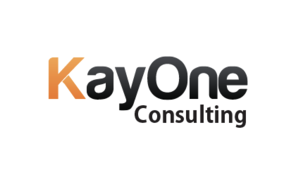Negotiating The Venture Debt Term Sheet
What is Venture Debt
Venture debt is a financing option for startups that provides them with the capital they need to grow their business. Unlike traditional debt, venture debt is offered by specialized venture lenders who understand the risks and opportunities of early-stage companies.
One of the main advantages of venture debt is that it allows startups to conserve their equity. Instead of giving up a portion of ownership in the company to raise funds, startups can use venture debt to finance their operations. This allows them to retain control of their business and avoid diluting the ownership of existing shareholders.
Venture debt also provides startups with a flexible source of capital. Unlike equity, venture debt can be used for a variety of purposes, including working capital, equipment purchases, and acquisitions. This flexibility allows startups to use the funds in the way that best supports their growth.
Benefits of Venture Debt Over Traditional Equity
There are several advantages of using venture debt over traditional venture capital:
- Preserves equity: Venture debt allows companies to raise capital without giving up a large percentage of ownership in the company. This can be especially beneficial for startups that want to retain control over their business while still raising the necessary capital.
- Flexibility: Venture debt can be used for a variety of purposes, such as working capital, equipment financing, or growth capital. This flexibility allows companies to choose the type of financing that best fits their needs.
- Tax advantages: Interest paid on venture debt is tax-deductible, which can provide a significant tax savings for companies.
- Non-dilutive: Unlike equity financing, venture debt does not dilute the ownership of current shareholders.
- Less restrictive terms: Venture debt terms are typically less restrictive than those associated with equity financing, meaning that borrowers have more flexibility to run their business.
- Less impact on valuation: Raising debt does not dilute the ownership of current shareholders, which can help preserve the valuation of the company.
- Quicker access to capital: Venture debt is often easier and quicker to secure than equity financing, as the lender’s main concern is the collateral and the company’s ability to repay the loan.
- Complementary with equity: Venture debt can be used in combination with equity financing, allowing companies to raise capital from multiple sources.
Venture debt can also be used to bridge the gap between equity rounds. Startups often need to raise additional funds to reach the next milestone before they can secure another round of equity financing. Venture debt can provide the necessary capital extend the current runway and secure the next round of equity financing.
[monsterinsights_popular_posts_inline]
What is a Venture Debt Term Sheet
Some of the common terms in a venture debt term sheet are:
- Principal: One important term to understand is the “principal amount,” which is the total amount of money that the startup is borrowing. This can be a fixed amount or a revolving line of credit.
- Interest Rate: The “interest rate” is the percentage of the principal amount that the startup must pay to the lender in interest. Interest rate is usually expressed as a percentage on an annual basis.
- Repayment Terms: This can include the repayment schedule, which sets out the dates and amounts of the repayment.
- Collateral Security: The “collateral” is the assets that the startup must pledge as security for the loan.
- Covenants: These are the conditions that the startup must meet in order to keep the loan in good standing. For example, the startup may be required to maintain a certain level of revenue or cash flow.
- Warrant coverage: This clause specifies the percentage of equity that the lender will receive in the form of warrants (options to purchase shares in the company at a future date) in exchange for the loan.
- Fees: This clause specifies any fees that the borrower must pay in addition to the principal and interest, such as origination fees, legal fees, and commitment fees.
- Event of Default: “Event of default” is a term that describes a situation when the startup has failed to meet its obligations under the term sheet. This can include a failure to make a payment on time or a breach of a covenant.
- Prepayment: is the ability of the startup to pay off the debt before the maturity date. This can be beneficial to the startup if they are able to generate enough cash flow to pay off the debt early, but it may also come with penalty.
A venture debt term sheet is a legally binding document that sets forth the rights and obligations of both the lender and the borrower.
[monsterinsights_popular_posts_inline]
Negotiating a Venture Debt Term Sheet
Negotiating the terms of a venture debt financing can be a challenging task for founders, but it is essential to ensure that the terms are favorable for the startup. The following are some tips for founders on how to negotiate venture debt terms.
- Understand Your Financial Goals: This includes the amount of capital needed, the intended use of the funds, and the company’s projected financials. Having a solid understanding of the company’s financials will help the founders to negotiate better terms and interest rates.
- Understand the Venture Debt Market: They should research different lenders and compare the terms and interest rates they offer. This will give the founders a better understanding of the market and enable them to negotiate more favorable terms.
- Negotiating Warrants: It is not uncommon for venture debt deals to have some sort of warrants built in. Warrants are provided to the venture debt lender to compensate for the higher risk taken by the venture debt investor. Usually a certain number of shares (warrants) are issued to the venture debt player at lower than market value. This difference is the gain/upside for the lender.
- Negotiate Key Terms: The founders should be prepared to negotiate on the terms of the loan. This includes the loan amount, prime rate, interest rate, interest payments, the repayment schedule, and the covenants. The founders should be willing to compromise on some terms in order to get better terms on others.
- Collateral or No Collateral: Not all startups can afford a business collateral. However, having a collateral can turn the loan terms in your favour. This can include assets such as equipment, inventory, or accounts receivable. Offering collateral can help to lower the interest rate and make the terms more favorable for the startup.
[monsterinsights_popular_posts_inline]
Top Venture Debt Players in India
Some of the top venture debt providers in India include:
- InnoVen Capital: InnoVen Capital is one of the leading venture debt providers in India, with a focus on technology, consumer, and healthcare startups.
- Trifecta Capital: Trifecta Capital is a venture debt firm that provides debt financing to early-stage startups
- Lendingkart Finance: Lendingkart Finance is a venture debt provider that specializes in lending to small and medium-sized enterprises (SMEs).
- IntelleGrow: IntelleGrow is a venture debt and alternative lending provider that focuses on financing small and medium-sized enterprises (SMEs) and entrepreneurs
- Alteria Capital: Alteria Capital is a venture debt firm that provides debt financing to high-growth startups in India.
- BlackSoil Capital: BlackSoil Capital is an NBFC that offers venture debt, private equity, and working capital loans to startups in India.
Conclusion
Negotiating the terms of a venture debt financing can be a challenging task for founders. But by understanding their financial needs, researching the market, being prepared to negotiate, offering collateral, providing regular financial reports, and being willing to walk away from a bad deal, founders can secure financing that is in the best interest of the startup.
In conclusion, venture debt term sheets can be complex and confusing for founders and making mistakes in the negotiation process can have significant consequences for the startup. To avoid these mistakes, founders should have a clear understanding of the terms of the loan, conduct proper research, offer collateral, provide regular financial reports, include an escape clause and seek legal advice. This will help them secure financing that is in the best interest of the startup.




